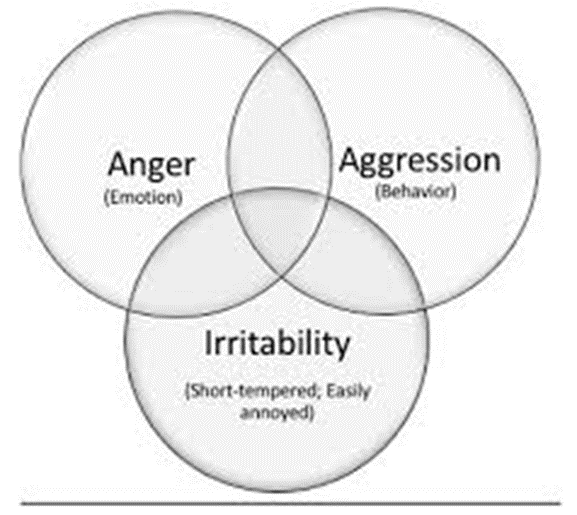The nurse recognizes that a function of the Mental Status Exam is to:
Organize clinical observations
Obtain information about the client’s medical history
Establish limit setting
Determine the client’s IQ
Correct Answer : A,B
The correct answer is a, b.
Choice A Reason:
The statement “Organize clinical observations” is correct. One of the primary functions of the Mental Status Exam (MSE) is to systematically organize clinical observations. This includes assessing the client’s appearance, behavior, mood, and cognitive functions. By organizing these observations, healthcare providers can create a comprehensive picture of the client’s current mental state, which is crucial for diagnosis and treatment planning.
Choice B Reason:
The statement “Obtain information about the client’s medical history” is correct. The MSE often involves gathering detailed information about the client’s medical history, including past mental health issues, treatments, and any relevant medical conditions. This information helps in understanding the client’s baseline mental status and identifying any changes or abnormalities. It also aids in creating an effective treatment plan tailored to the client’s specific needs.
Choice C Reason:
The statement “Establish limit setting” is incorrect. While limit setting is an important aspect of managing certain mental health conditions, it is not a primary function of the MSE. Limit setting typically involves establishing boundaries and rules to manage behaviors, which is more relevant in therapeutic settings rather than during the assessment phase. The MSE focuses on evaluating the client’s current mental state rather than setting behavioral limits.
Choice D Reason:
The statement “Determine the client’s IQ” is incorrect. The MSE is not designed to measure a client’s intelligence quotient (IQ)4. Instead, it assesses cognitive functions such as memory, attention, and orientation. IQ tests are specialized assessments that require specific tools and are conducted separately from the MSE. The MSE provides a general overview of cognitive functioning but does not quantify intelligence.
Nursing Test Bank
Naxlex Comprehensive Predictor Exams
Related Questions
Correct Answer is A
Explanation
Choice A Reason:
Assist the client to identify triggers or sources of stress.
This is the correct response. Before educating clients about relaxation techniques, it is essential to help them identify their specific triggers or sources of stress. Understanding what causes their stress allows for more tailored and effective relaxation strategies. This step ensures that the relaxation techniques taught are relevant and can directly address the client’s needs, leading to better outcomes in managing anxiety and stress.
Choice B Reason:
Educate the client’s family so they can be active participants in the therapy.
While involving the client’s family in therapy can be beneficial, it is not the primary action to take before educating the client about relaxation techniques. Family education can support the client’s overall treatment plan, but the initial focus should be on understanding the client’s individual stressors and needs.
Choice C Reason:
Perform a physical assessment to ensure the client is able to participate in this therapy.
Performing a physical assessment is important to ensure the client can safely participate in relaxation techniques. However, this step is secondary to identifying the client’s stress triggers. Once the triggers are identified, the nurse can then assess the client’s physical ability to engage in specific relaxation exercises.
Choice D Reason:
Obtain an order from the psychiatrist during the treatment team.
Obtaining an order from the psychiatrist may be necessary for certain interventions, but it is not typically required for teaching relaxation techniques. The nurse can independently educate clients on these techniques as part of standard nursing care for managing stress and anxiety.
Correct Answer is B
Explanation
Choice A Reason: Sits in group with back to peers
Sitting with one’s back to peers can indicate a desire for isolation or a lack of trust, but it is not a definitive sign of escalating anger or aggression. This behavior might be more indicative of withdrawal or discomfort in social settings rather than an immediate precursor to violence.
Choice B Reason: Has a tense facial expression and body language
This is the correct answer. Tense facial expressions and body language are clear indicators of escalating anger and aggression. Signs such as clenched fists, a rigid posture, and a furrowed brow are physical manifestations of internal tension and can precede aggressive outbursts. Recognizing these non-verbal cues is crucial for early intervention and de-escalation.

Choice C Reason: Requests PRN medications
Requesting PRN (as needed) medications can be a sign that the client is experiencing increased anxiety or distress. However, this behavior alone does not necessarily indicate escalating aggression. It may actually be a positive sign that the client is seeking help to manage their symptoms before they escalate.
Choice D Reason: Does not want to eat lunch
A lack of appetite or refusal to eat can be associated with various conditions, including depression, anxiety, or physical illness. While it may indicate that the client is not feeling well, it is not a specific indicator of escalating anger or aggression.
Whether you are a student looking to ace your exams or a practicing nurse seeking to enhance your expertise , our nursing education contents will empower you with the confidence and competence to make a difference in the lives of patients and become a respected leader in the healthcare field.
Visit Naxlex, invest in your future and unlock endless possibilities with our unparalleled nursing education contents today
Report Wrong Answer on the Current Question
Do you disagree with the answer? If yes, what is your expected answer? Explain.
Kindly be descriptive with the issue you are facing.
